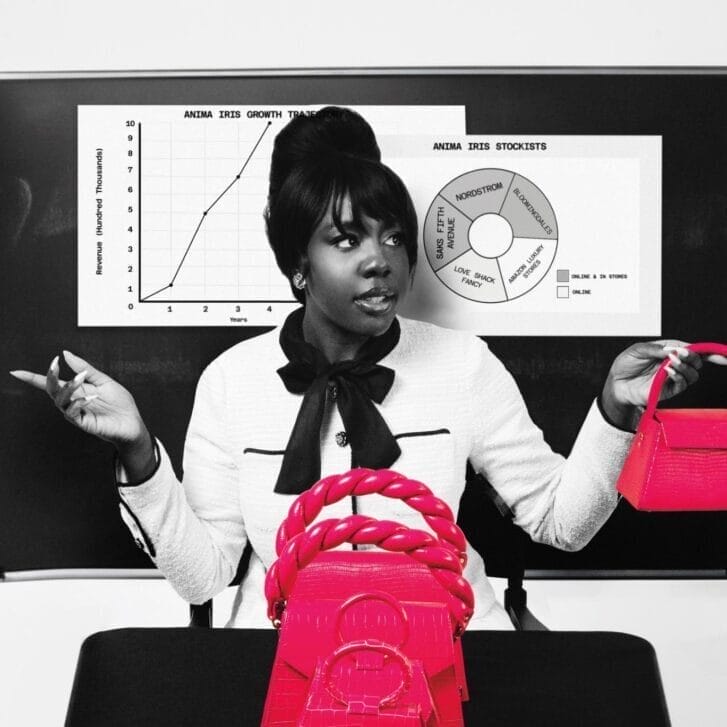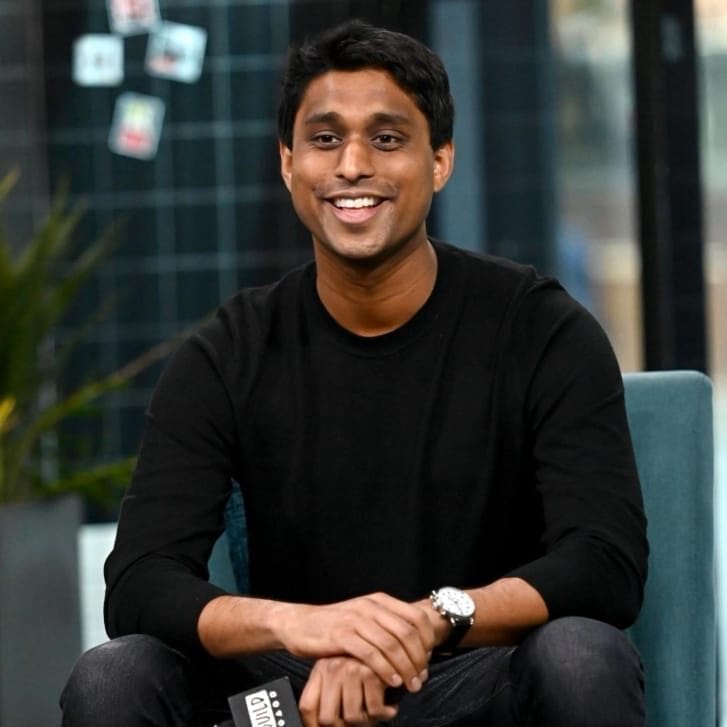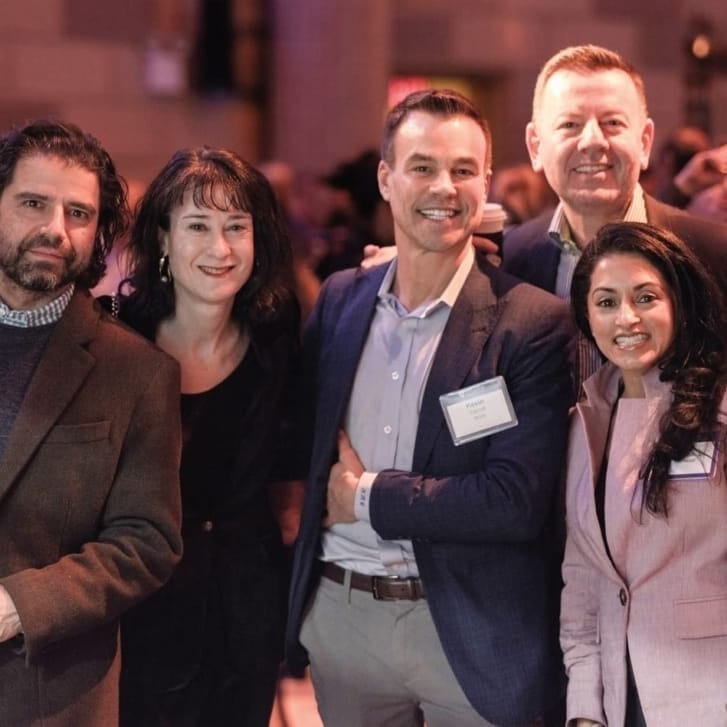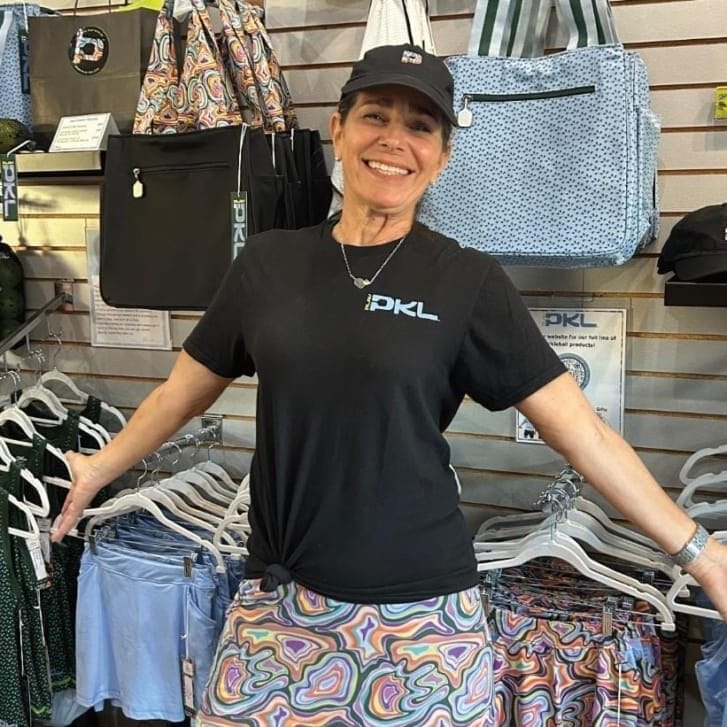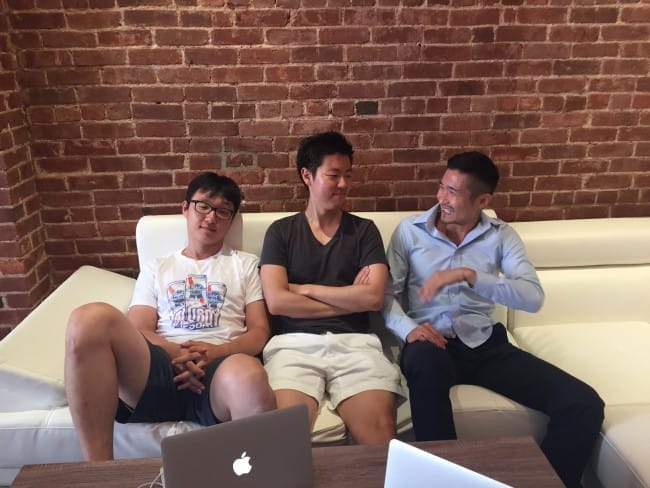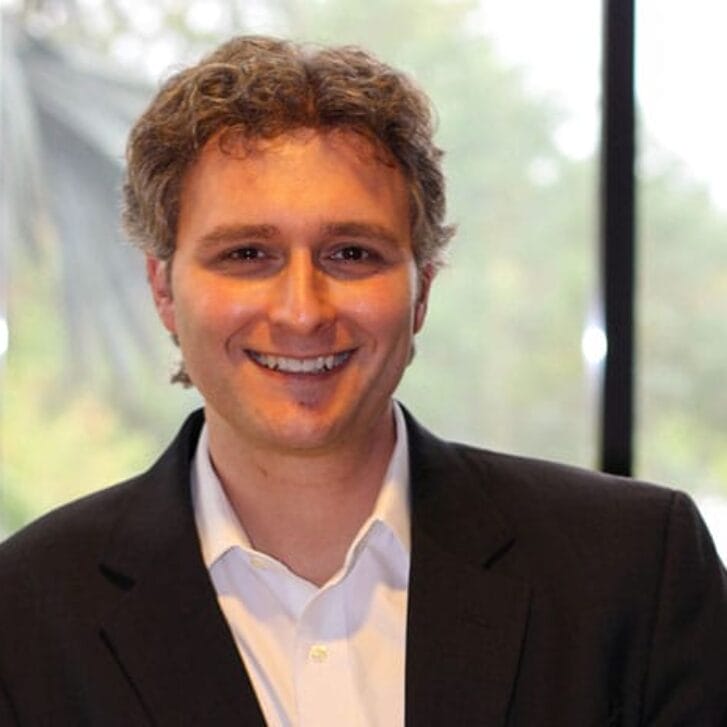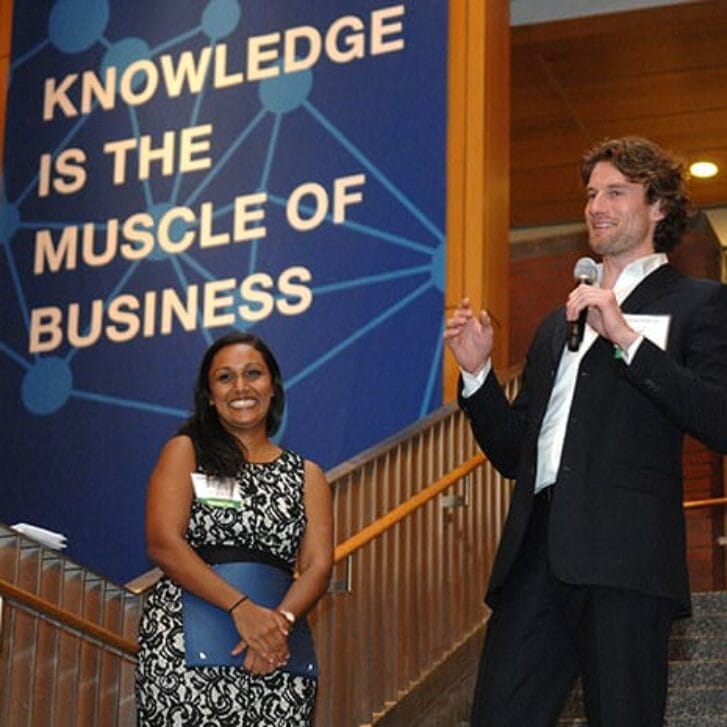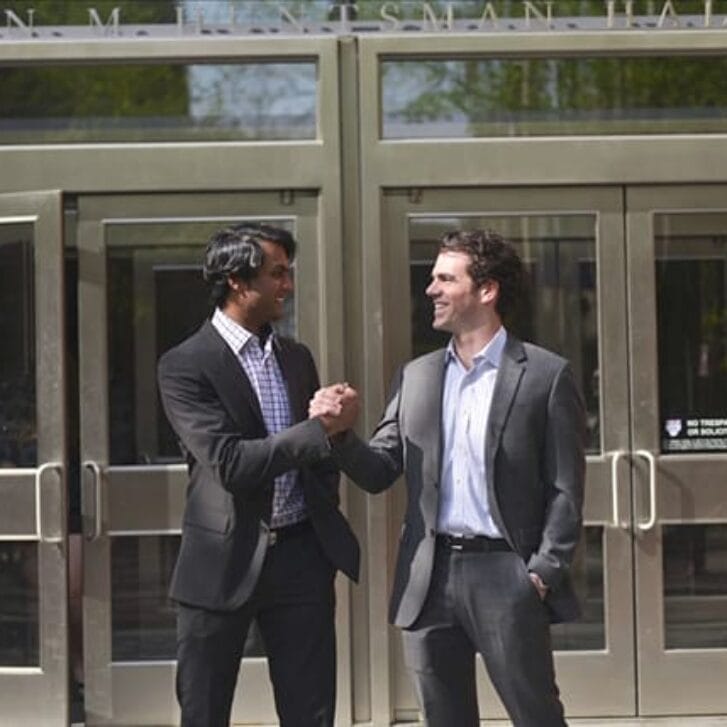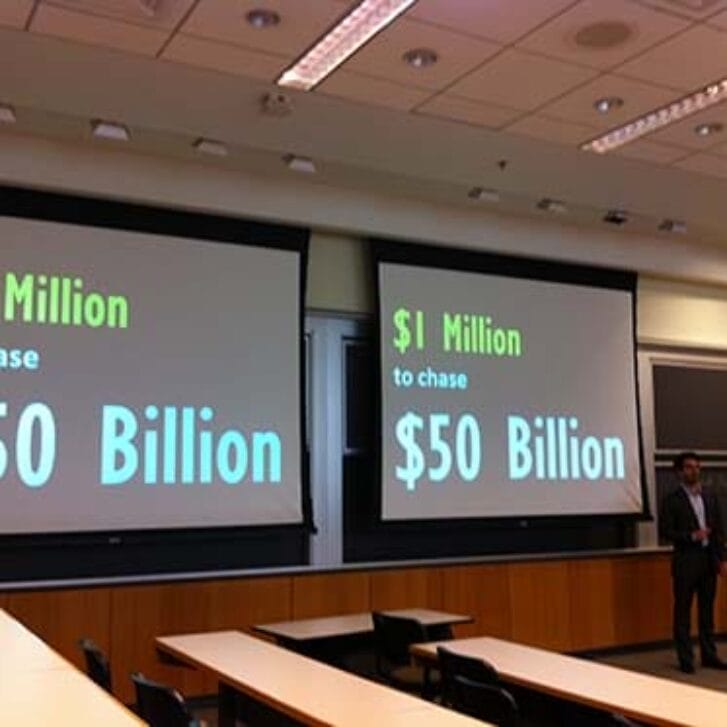Wharton alumni are known to “take the call”—spend the time to listen to fellow community members and offer assistance—and they are known to “forward the call” on occasion too. That is, they often will connect their fellow alums with other interested parties. Such as Wharton Magazine. In the most recent instance, Wes Gray W02, a Drexel LeBow College of Business finance professor, co-founder of Alpha Architect and Wharton Blog Network contributor, passed along the name of Robert Seo WG12.
Seo, as you might recall, is co-founder of Slidejoy, a mobile marketing platform that won the Perlman Grand Prize at the 2014 Wharton Business Competition. Seo and his colleagues—co-founders Sanghoon Kwak G14 WG14 and Jay Chung—had been on our radar and Gray’s nudge was enough to have us reach out. How has Slidejoy fared since the founders left campus? Not bad, it appears, as we learned by getting on a video conference call with the team recently.
On paper, Slidejoy is seeing plenty of growth. Hundreds of thousands of people use the app now, and the company aims to cross into the millions of users by the end of the year. The Wharton startup raised $1.2 million in order to market to consumers to meet that goal. Previously, Slidejoy had bootstrapped its operation, and the co-founders invested a lot of sweat equity.

An example of a Slidejoy card that might appear on your Android lock screen
A hurdle will be attracting advertisers who want to reach their users. Slidejoy’s management team got plenty of “warm introductions” to brands and ad agencies through Wharton connections, but as the user base grows, the team will need to continue to cultivate relationships to bring value to those users. It’s a little of the chicken and the egg dilemma.
To understand why, understand how Slidejoy works. It’s an app (only for Android at the moment) that allows marketers to place an ad directly on a user’s lock screen. It’s kind of like Tinder for brands looking for consumers. Picture this: You turn on your phone, and the first thing you see is a promotion or a piece of content from a brand, like Adidas—in what the Slidejoy team calls a “card.” From there, users can slide left to access additional info about the card, slide up to see another card or slide right to go to their phone’s homescreen.
Behind the scenes, the app is tapping into a user’s phone data to target ads.
It might sound intrusive except that you have signed up for these promotions by downloading the app. And you get paid for having the app and allowing Slidejoy access to your phone—a flat rate of up to $6 per month depending on which and how many advertisers the Slidejoy has. Users can apply that money to pay for their smartphone bill or even donate it to a worthy cause (like Jericho Project, whose executive director is Tori Lyon W89, and Got Your Six, whose executive director is Chris Marvin WG11).
Seo, Kwak and Chung are confident that they will be able to secure more advertisers and brands as they expand their user base—cooking up the egg and the chicken at the same time—for a number of reasons, but one in particular is the Wharton connection. For starters, they all met and came up with the idea thanks to Wharton.
“We have random and diverse paths … and they all crossed through Wharton,” Seo says.
Seo, a military veteran (like Gray) who came to Wharton by way of UBS, South America and Goldman, moved to South Korea after his MBA to seek a worthwhile business opportunity. Through another Wharton friend, he met Chung, who moved back to Korea after one year in the Wharton MBA program. Chung had known Kwak, a software engineer by training and profession, from classwork in Philadelphia.
“We have been talking a lot about ideas in our first year,” Kwak says of Chung.
Long story short, they all met in Korea in the summer of 2013.
Next would come the Wharton Business Plan Competition win last year, and equally important (or honestly, more important) the three of them were able to assemble a “world-class” development team that includes a man known mysteriously as the “The Dr.” The team has created apps downloaded in total 600 million times worldwide, says Seo.
“It’s hard to find that level of talent unless you’re at a place like Wharton,” Seo says.
Success could be at hand, claim the co-founders, because they are on the verge of piecing together a multibillion-dollar puzzle for the marketing world.
“Nobody’s figured out mobile, but we’re on that cusp,” Seo says.






